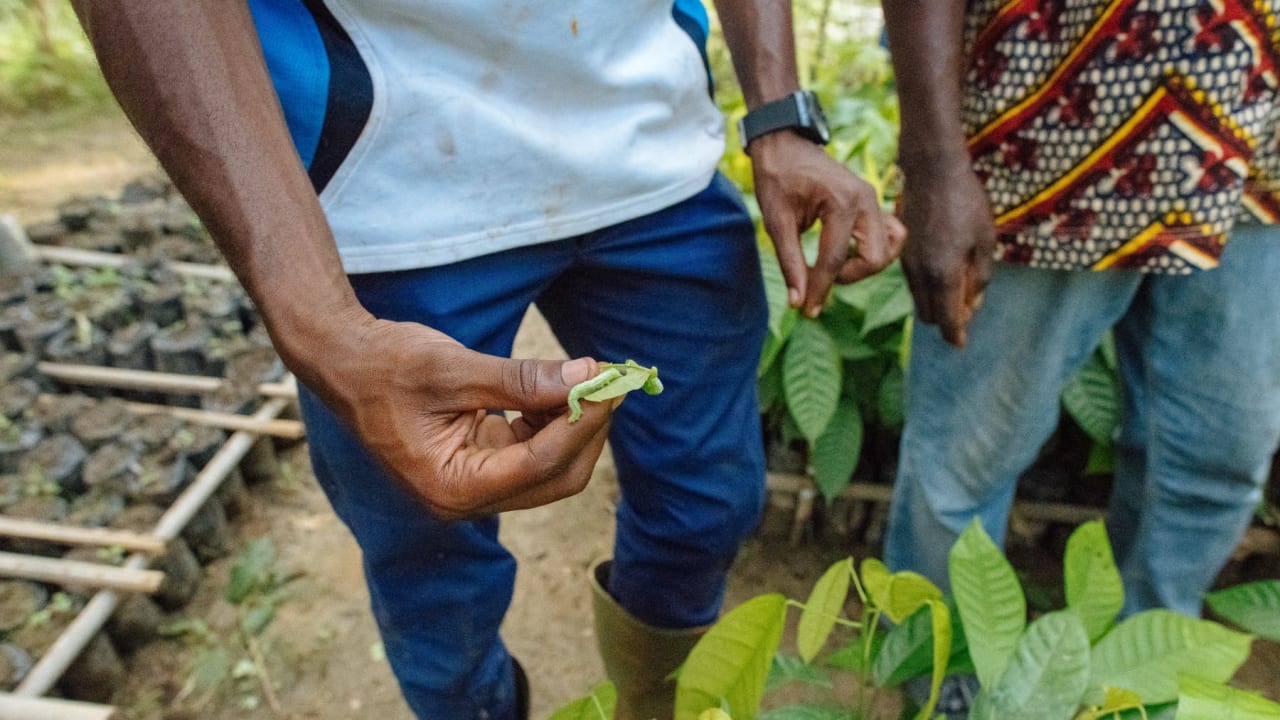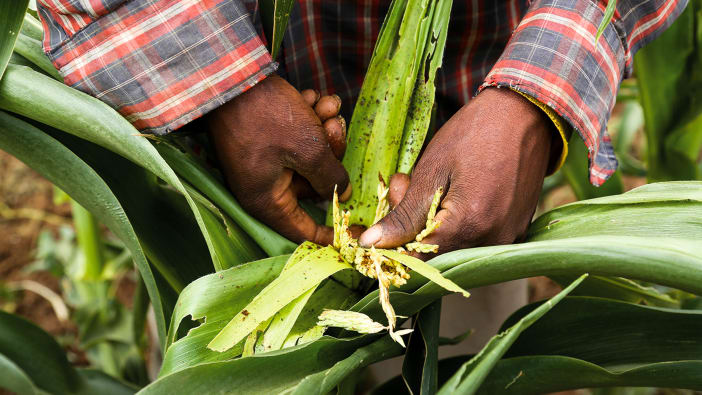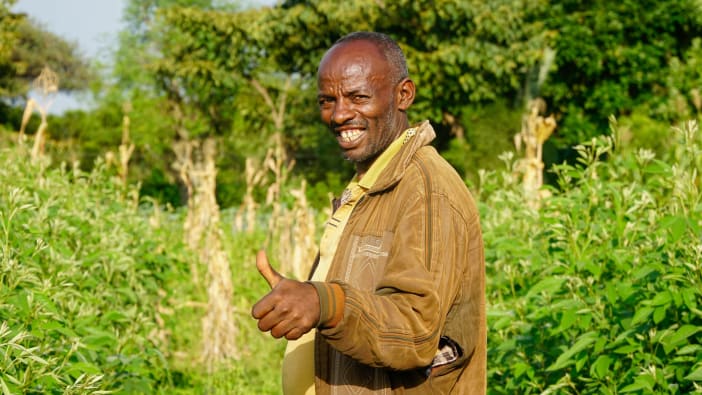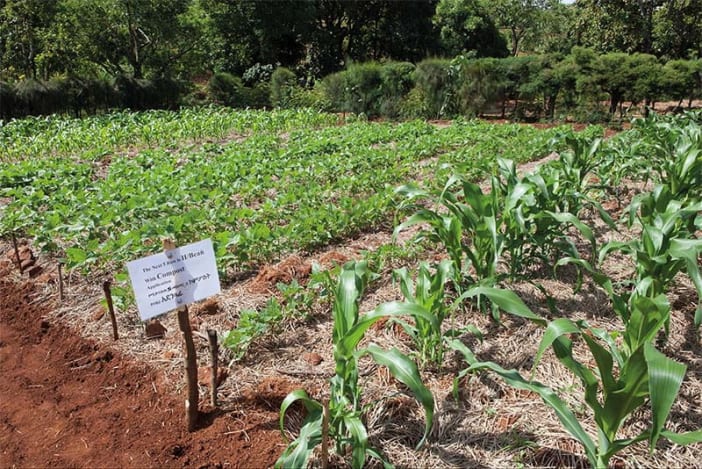Insects are very important to agriculture. They pollinate crops, recycle nutrients, control other insects and improve soil fertility. However, when insects start to damage crops, they need to be managed.
‘Natural pest management’ is a method of controlling insect pests without using chemicals. Instead, other insects, birds, animals, plants or mechanical techniques are used.
What is a pest?
An agricultural pest is an insect or animal that causes damage to a plant or crop. It is possible for an insect to be a pest in one situation and beneficial in another.
Common insect pests include:
- borers that weaken the plant such as termites and stem-borers in maize
- aphids that pierce the leaf or stem and suck the sap, weakening the plant and spreading disease
- beetles, weevils and caterpillars that eat leaves
- grasshoppers and locusts that bite the top off seedlings.
Learning about pests
Before deciding which pest-control method to use, it is important to learn about the pest. It would be a mistake to waste time and money controlling an insect when it is not causing any damage.
1. Identify the pest. For example, if there are holes in the leaves, go to the plant at different times of the day and night to see if you can find the pest in action.
2. Learn about the pest. Learn about its life cycle, food and natural enemies. Often there is a stage of the life cycle when it is easier to control insect pests, such as getting rid of the eggs before they hatch. A pest can be controlled by removing its food source or introducing natural enemies (predators). Talk to local farmers and agricultural advisors to find out more, or search for information about the insect online.
3. Monitor the behaviour of the pest. Does the pest appear on a seasonal basis? Can it be found all over the plant or crop, or only in certain places? Is the pest increasing or decreasing in number?
4. Decide when to take action. Biodiversity is important and we should try not to disturb the natural balance of ecological systems unless it is absolutely necessary. It is only worth investing money in pest control if the cost of damage caused by the pest is greater than the cost of controlling it.
5. Evaluate the effect. After a natural pest‑control method is used, evaluate its effect. Will you use this method again, or should another be tried? Did the method affect other insects? Was that a good or a bad thing?
Natural pest controls
Once you have discovered all you can about the insects that are affecting your crops, you can decide on the best method or methods to control them.
Plants
- Grow different types of plants together to reduce the movement of pests between rows. For example, if radishes are planted next to melons, beetles will not move between the rows because they do not like the taste of radishes.
- Protect the main crop by surrounding it with strong-smelling plants that many insect pests do not like, such as garlic.
Predators
- Grow non-agricultural, seed-producing plants and trees to attract birds that eat insect pests.
- Attract insect-eating animals by growing plants they like to eat, or that provide shelter and protection from other predators. Toads can eat thousands of insects each month, including cutworms, ants and caterpillars. Spiders also eat many insect pests.
- Encourage beneficial insects such as ladybirds by ensuring that there are plants and flowers nearby that they can feed on. Ladybirds can eat 40–50 aphids each day and their larvae can eat even more.
Mechanical control
- Pick larger insects off plants by hand. (This is effective in small plots before the pest breeds, but is not a practical solution in large fields).
- Cover fruit and vegetables to protect them from flies and other insects.
- On small plots, use sticky insect traps.
Natural pesticides
Pesticides can be made using natural ingredients. For example, caterpillars, aphids and ants can be controlled using a red chilli pepper spray.
To make the spray:
- chop up a cup of red chilli peppers and add two litres of water
- leave to stand for two to three days, or boil for 15 minutes
- mix in a handful of soap powder and then filter the liquid through a piece of cloth
- spray onto crops in the evening: once a week in dry weather and three times a week in wet weather
- wash crops before consuming.









